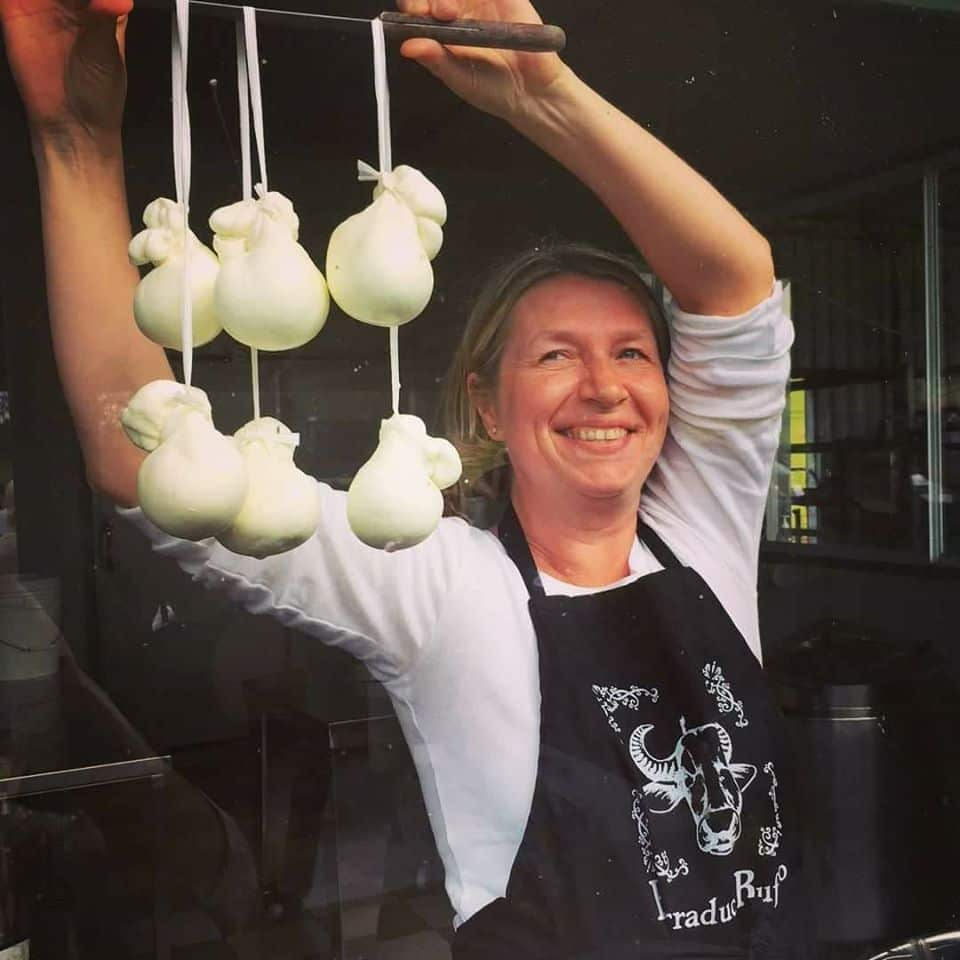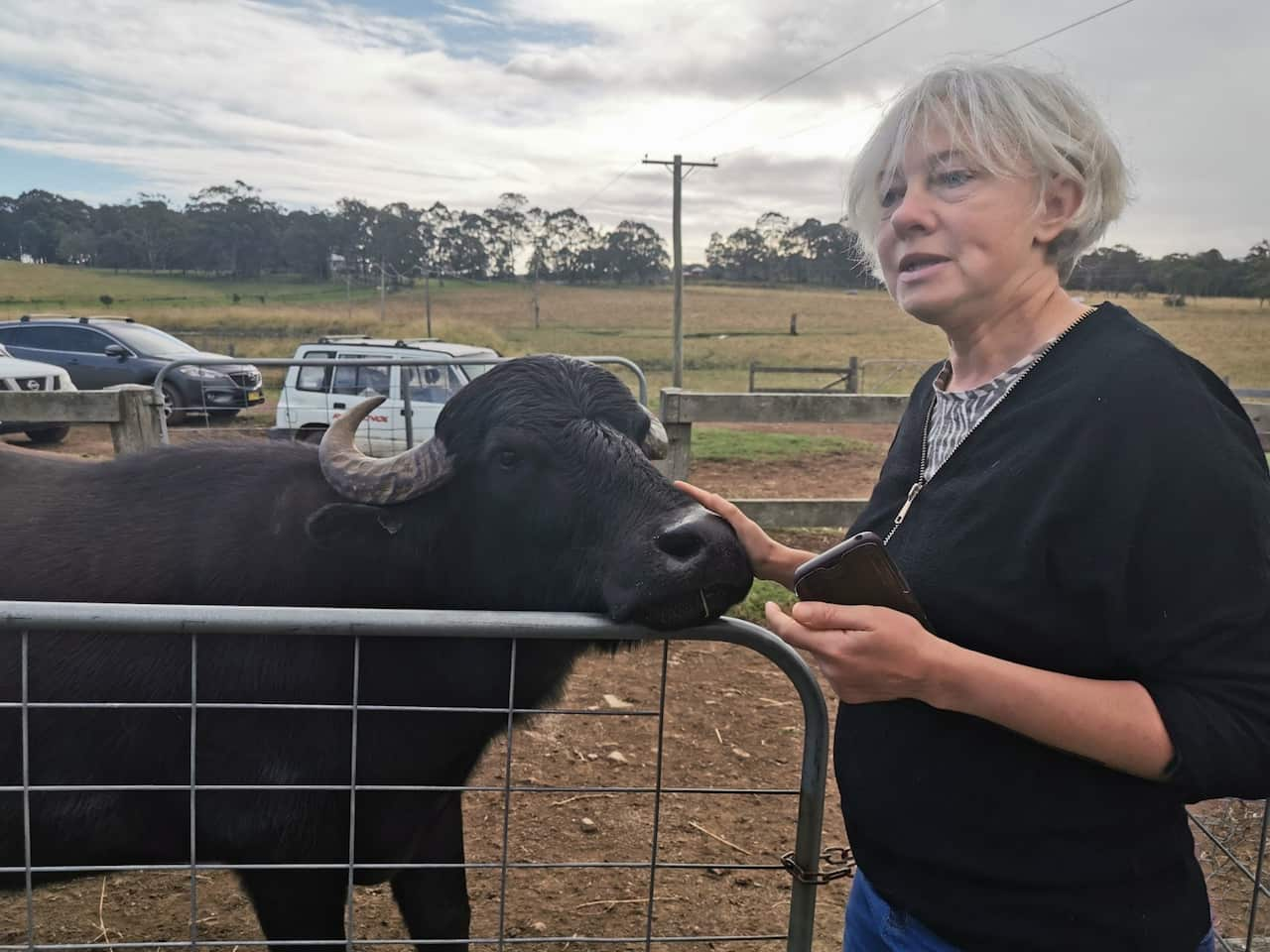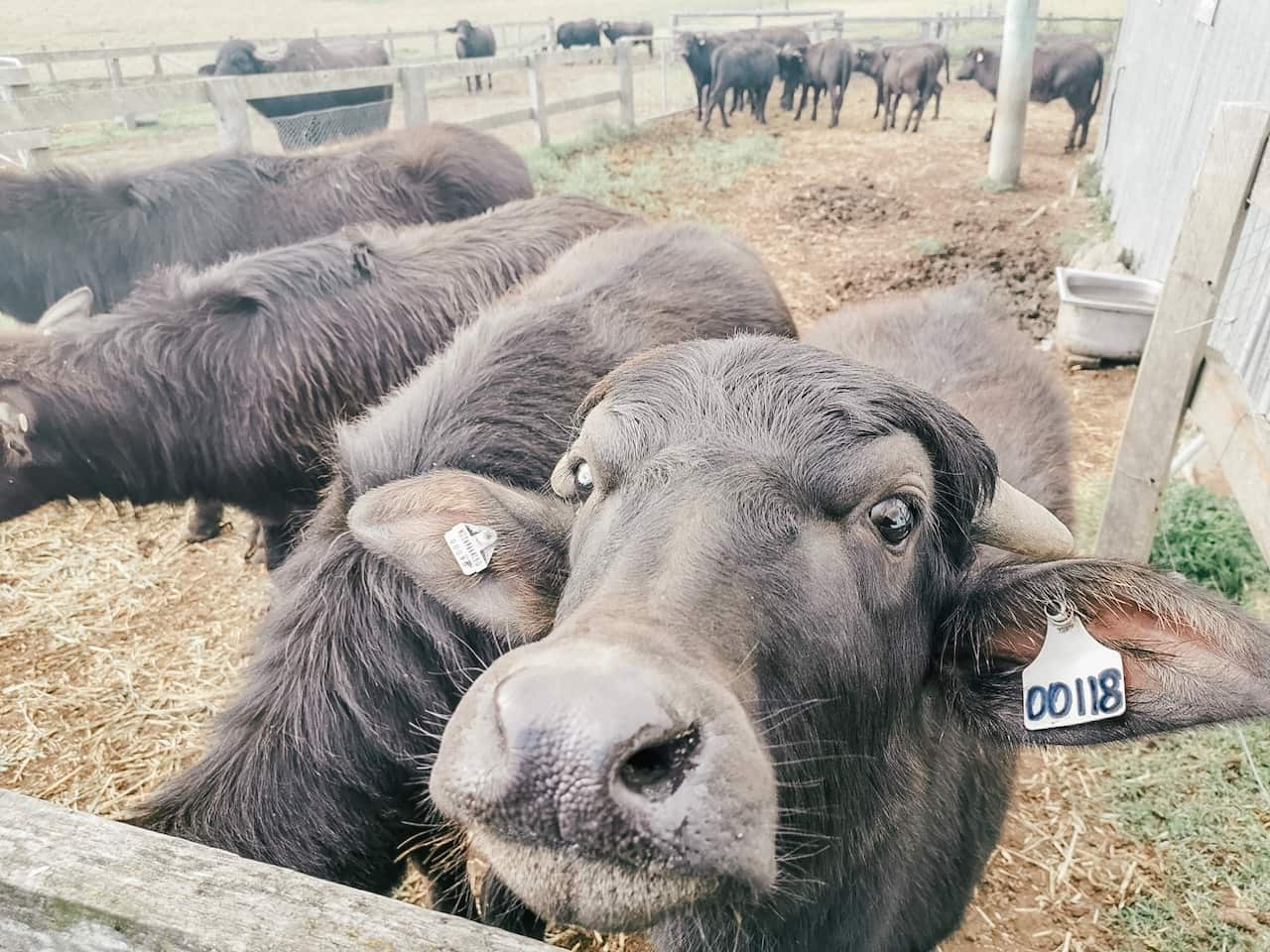Elena and Andrie Swegen moved to Australia in 1995, bidding adieu to their beloved Moscow to chase their dream of living close to nature at some quiet place.
They turned to the farming profession in Australia 12 years ago, starting with goat breeding, then moving to racehorses and then there were cows before the couple finally settled down for buffaloes.
But the idea was to always work with farm animals.
"Even our love story started with milk," Mr Swegen says.
"We both always loved fresh milk and were looking for someone who could deliver it. That's how we met and started talking. And that's how we decided to open our own farm together."
Today the couple has 50 buffaloes on a 100-acre farm north of Newcastle in NSW. They chose the place on the NSW mid-north coast six years ago to start Burraduc buffalo farm because of the "ideal conditions" for buffaloes with water and lush grass fields, next to the Wallingat national park.
They also started a cheese-making facility and began producing NSW's first A-grade food safety-licenced buffalo dairy and Italian cheeses, thanks to the outstanding milk of their buffaloes. But to excel in the game, Ms Swegen travelled to Europe in 2014 when she got Churchill Fellowship to research innovation and welfare in the water buffalo dairy industry.
But to excel in the game, Ms Swegen travelled to Europe in 2014 when she got Churchill Fellowship to research innovation and welfare in the water buffalo dairy industry.

Scamorza is a stretched-curd cheese, in which the fresh curd matures in its own whey for several hours. Source: Burraduc Buffalo farm
She travelled across Europe, including the southern Italian region of Campania which is famous for its traditions of buffalo breeding and old craft of mozzarella.
"Our aim was to learn from the best," Ms Swegen says.
"I asked the Italian cheesemaker how long it takes to train a new person to make mozzarella. He replied two weeks would be enough.
"I was very surprised and said that I have been studying this craft for nine years and still can't consider myself as a professional. He then smiled and said 'Yes, now I see that you already know the basics'". In 2018, their mozzarella scooped out the state prize in delicious produce awards.
In 2018, their mozzarella scooped out the state prize in delicious produce awards.

Elena Swegen, the owner of Burraduc Buffalo farm Source: Supplied
Burraduc's mozzarella, ricotta and other dairy products are quite delicate and have a very short shelf life, which makes these products unsuitable for stocking at supermarkets. Their clients are primarily reputed fine dining restaurants.
But because of the restrictions on restaurants due to the coronavirus pandemic, the farm's business has taken a big hit, forcing the couple to diversify their customer base.
"We had to quickly find a new niche. So we created a website and began to sell our products online to private customers," Mr Swegen says. Despite the fact that they were already very busy from dawn to dusk with work at the farm, the couple needed to deliver orders to customers across Sydney. Mr Swegen says sometimes it takes him 14-16 hours a day but there are no other options for them at this challenging time.
Despite the fact that they were already very busy from dawn to dusk with work at the farm, the couple needed to deliver orders to customers across Sydney. Mr Swegen says sometimes it takes him 14-16 hours a day but there are no other options for them at this challenging time.

Source: Burraduc farm
While he drives his truck to deliver orders to customers, many of whom are from the Russian-speaking community, Ms Swegen and their daughter Alena and two temporary workers from France, Lucy and Roman, work on the farm. They also sell their products locally to people who are driving by their farm. Customers can simply take fresh dairy from the fridge in a small unmanned gazebo, across the street from the farm.
They also sell their products locally to people who are driving by their farm. Customers can simply take fresh dairy from the fridge in a small unmanned gazebo, across the street from the farm.

Source: Supplied
"Сustomers can just open the refrigerator, take everything they need and leave the cash or transfer the payment to the bank account," says Ms Swegen.
She says in three years, there were only two occasions when people took the stuff without paying.
The couple says these are very difficult times for farmers, with the drought, the bush fires and the coronavirus pandemic striking back-to-back. But the Swegens says they are not going to give up.
